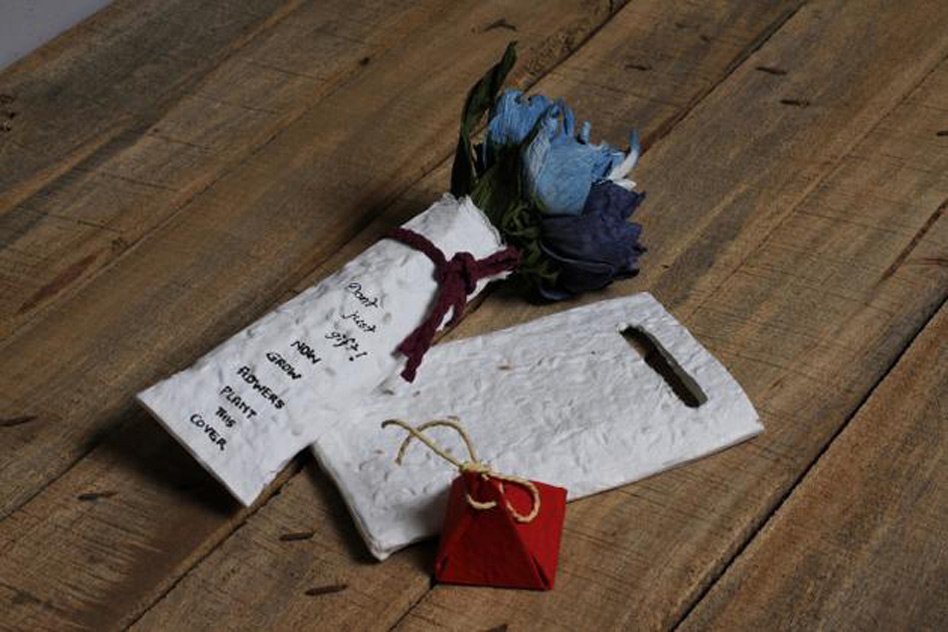
A Technology That Helps Plant To Grow On Paper
30 Sep 2015 7:37 AM GMT
Source and Image: The Hindu
Imagine the streets without litters while navigating the streets. Have we ever thought of coffee cup sleeves growing into herbs, door tags that transform into carrots or greeting cards into fragrant lemons? Exactly the same idea struck to Jaipur based Tomato & Co that manufactures paper embedded with seeds that can germinate and sprout when sown.
As per the report published in The Hindu, it all started when Kritika Parwal was studying in the U.S. and had to think of an out-of-the-box marketing solution for one her classes. Her innovative idea of seed paper worked.
She said, “It worked. I received an amazing response from my professors and classmates.” While partying she got the chance to meet a brand manager of Kissan to whom she shared the idea. Her basic premise was to start a business on the lines of a social-sustainable.
“The next morning, he called and asked me to do this for them. I spent about 15 days at Sanganer (Rajasthan), going back and forth over the process, procuring little samples and experimenting with them. Eventually, a few plants grew and we’ve worked out a nine-step process that will be patented soon,” she added.
The first seed paper contained tomato seeds. After this, Unilever placed an order for 3 lakh pieces. The team of Kritika has also been part of Kissan’s ad campaign where tomato seeds were distributed in Delhi and Mumbai through sachets stuck to the morning newspaper.
Imagine events that use a large amount of wristbands, nametags and other paper-based products that are only thrown out in the end. That’s where seed paper comes in — these products can be recycled to grow into something useful,” Kritika says.
She manages to simplify the paper-making process: the organic pulp (got from shredding paper and soaking it in water) is placed on screens and flattened out, dried under the sun, rolled a few times and then calendared or smoothened out.
Some of the challenges, she explains, are avoiding chemicals that go into the binding process, procuring organic paper and finding an alternative to calendaring, as it tends to destroy seeds. She says that the seeds are sourced from Jaipur and the colors used are organic such as Indigo and Saffron.
She admits that they are little expensive adding that they are a double bottom line organization who looks at profit and also at the number of seeds that are sown. Apart from calendars, wedding invites, post cards, coffee cup sleeves, bookmarks, the company will soon come out with greeting cards.
 All section
All section













